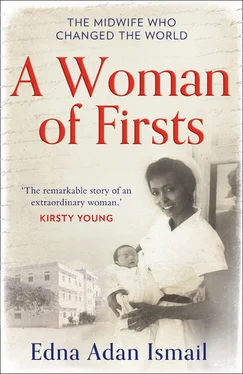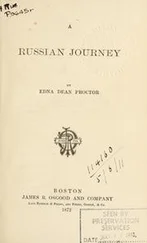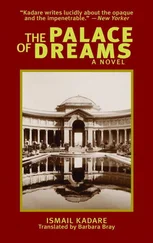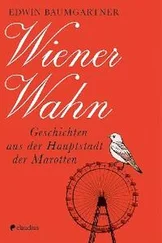1 ...6 7 8 10 11 12 ...16 No sooner had I sat down on the stool as instructed than mother’s friends grabbed my arms while others yanked up my nightie, grabbed my legs and pulled them apart. One woman gripped my left leg and another my right, while a third held me in a stranglehold, pressing me down firmly by my shoulders. In a well-planned operation that relied on speed and surprise, I spotted a knife glinting in the morning light streaming through the window and screamed as the old woman squatted before me and started cutting between my legs.
I can still remember the pain more than seven decades later, and I live that moment over and over again each time I think about it. I could feel the knife slashing through the sensitive flesh of my private parts and the stickiness of my blood as I screamed and struggled. My mother and grandmother watched my ordeal but neither came to my rescue. They just stood there, ululating joyfully as they witnessed what we now call FGM, female genital mutilation – a barbaric, ritualistic circumcision far more common than vaccination in my country – designed to act as a human chastity belt until the night of my marriage.
I must have passed out because I can remember waking up physically and emotionally exhausted. I had no more fight left in me. There was a horrible wheezing sound coming from my throat. The next thing I knew, the old woman was stitching together my wound with acacia thorns, pulling them together with string like a shoelace. The pain was excruciating. In what felt like a living nightmare, my legs were then bound all the way up to the thighs and hips. The women then lifted me onto the disposable mat that would soak up my blood and had been laid on my bedroom floor for this purpose. It had been so carefully planned. The old woman sprinkled a mixture of herbs, sugar and a raw egg yolk onto my open wound to form some sort of crust.
‘Egg will make you fertile,’ she declared with a toothless smile. ‘And sugar will make you sweet.’ Now that I’m a nurse, I can’t help but think that the mixture was a perfect medium to enable bacteria to grow, plastered onto an open wound by a woman with dirty hands, a dirty knife, using dirty rags. It was so gruesome at the time, and it is still gruesome to recall.
As I lay on the floor bleeding and sobbing in shock and pain, I was astonished that not one person showed me any sympathy at all. There was nobody to cry with or complain to, including my own flesh and blood. On the contrary, they were in a happy, festive mood. The sheep was slaughtered outside and a grand lunch prepared, with many of our neighbours summoned to share the special meal in my honour. The daughter of Adan Ismail had been ‘cleansed’ and all were invited to partake of the purification feast and celebrate the occasion. The women I loved the most in the world and who I’d always thought would protect me had deliberately selected the day for my gudniin or circumcision when they knew my father would be out of town. They then stood by while this horrific ritual was performed on me without any anaesthetic. They saw me kicking. They heard my screams. They paid for my butchery to be performed by someone who was neither medically qualified nor professionally trained.
They never warned me of what was about to happen in what I now understand to be a conspiracy of silence among Somali and other women dating back centuries. Far from being horrified at this brutal thing that had been done to me, they were happy and relieved about it.
As an eight-year old child, I could not comprehend it.
As a woman in her eighties, I still cannot accept it.
***
The next thing I really remember was hearing my father’s voice. It must have been much later that night when he returned from the bush. Unable to move for the pain, I cried out to him. ‘Daddy! My Daddy!’ as he hurried in to see me.
Holding up a Tilley lamp, he took one look at me and fell to his knees, his prone figure casting a huge shadow on the wall. ‘What have they done to you, Shukri? What have they done?’
My grandmother berated him from the doorway, telling him that it was nothing to do with him and that he shouldn’t interfere. The women genuinely believed that if I were seen by a man then it could ‘contaminate’ my purification so that the wound wouldn’t heal, the skin wouldn’t fuse together, and the procedure might have to be done again. Ignoring his own mother, he slumped onto the mat and cradled me in his arms, allowing me to cry and cry until there were no more tears.
‘ Aabo wey i qasheen !’ I wept. ‘Father, they slaughtered me! They carved me up!’ I believe I saw tears in my father’s eyes too. For the first time since my cutting I had an ally – somebody who was offering sympathy and seemed to be hurting almost as much as I did.
Then my mother rushed in, shouting. ‘Leave her alone, Adan! Don’t touch her or you’ll infect her. It will undo the stitches!’
I have never seen my father so angry. ‘How could you?’ he raged. ‘Why have you done this?’
From the expression on her face, I think my mother was suddenly very ashamed. My grandmother countered that they had only done what was expected of them. I remember she used the expression ‘the right thing’. There was a terrible argument between the three of them then in the next room; unlike anything I’d witnessed before. I will always associate it with that day. Listening to their row and seeing how upset my father was by what had happened to me gave me a little courage. It made me realize that this wasn’t right. If it had made Father angry then what had been done to me must be wrong.
In silence and with his jaw clenched tightly, he came back into my room with a glass of water, some painkillers, and a few cloths to clean myself with. Grandmother kept telling him not to give me anything to drink, as it would make me urinate before the wound had fused. Tradition prevented him from examining me, sterilizing the cuts or giving me surgical dressings. He remained furious for weeks and continued to support me as best he could from afar, but we both knew it was too late for him to change what had been done.
It was many years before I discovered exactly what the procedure had involved. The old woman, who had the spurious title of ‘traditional birth attendant’, had sliced off my clitoris and labia minora with her knife and then pared the sides of my labia, removing all the skin right down to the perineum until it was raw and bleeding profusely. Without a surgical glove in sight, she attached the folded edges of my vulva or labia majora to the raw flesh, covering my vagina like a hood. This would eventually fuse together to form a hard bridge of scar tissue that would almost completely restrict the opening. The medical term for it is infibulation, and in what these women considered to be a ‘properly infibulated girl’ you should not be able to get anything larger than the head of a matchstick into the vagina from that day on until the night of her wedding. This means that whenever urinating or menstruating, urine and blood has to drip-drip out of a hole approximately 1.5–2 mm wide.
I knew nothing of this as a child, of course. I simply lay trapped and isolated in my room, a prisoner of my mother and grandmother, in agony as the wound began to scab and congeal around the thorns. What hurt the most, though, was the overwhelming sense of betrayal. This changed my relationship with them for ever. Custom dictated that I was to lie on the floor for a week to allow the wound to heal, and hardly drink anything. I was given a little white rice to eat with some sour milk or yoghurt, designed to keep me constipated for several days. But the time came when I needed to empty my bladder, so – although I no longer trusted my mother – I had no choice but to call to her for help. She and my grandmother carried me to the toilet pit and lay me on my side on the floor. ‘Go ahead and urinate,’ they said, as if it was as simple as that.
Читать дальше












